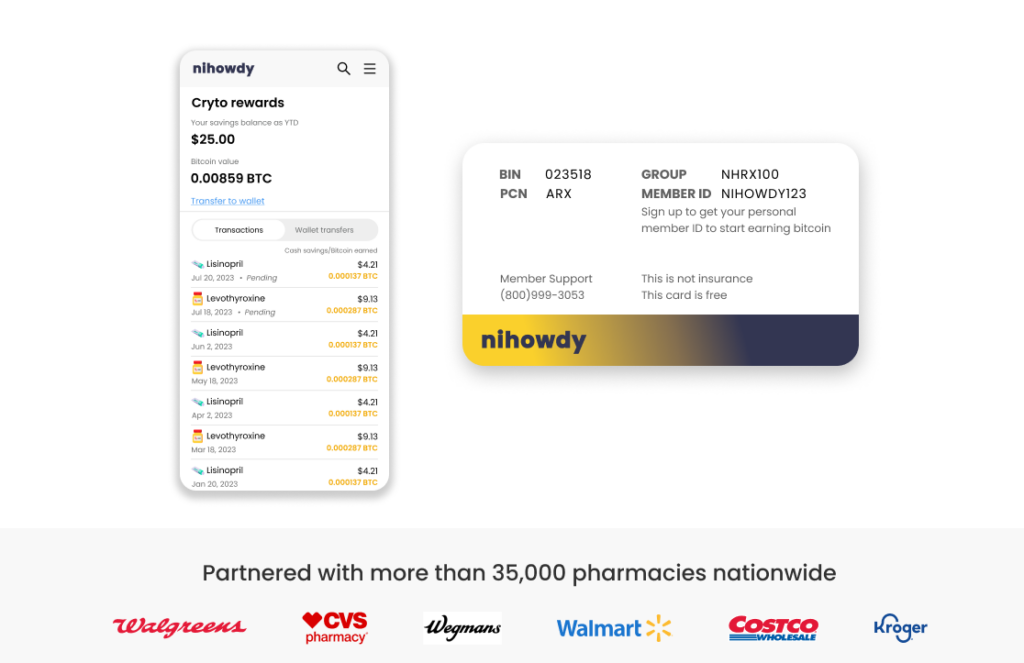Safe Pain Management: Can I Take Tylenol With Diclofenac?


If you’re pondering the possibility of combining Tylenol and diclofenac for managing pain, and ask yourself, “Is it safe to take Tylenol alongside diclofenac?”, this article has got you covered. It delves into how Tylenol and diclofenac work, whether their co-administration is safe, and what considerations should be taken into account. Continue reading to ensure that you make informed decisions about this aspect of pain management.
Key Takeaways
Tylenol (acetaminophen) and diclofenac can generally be combined safely within recommended dosages, but it’s crucial to consult a healthcare provider for individual health needs.
Using Tylenol and diclofenac together can improve pain management, particularly in conditions like knee osteoarthritis; however, monitoring for adverse reactions and appropriate dosing is essential.
There are various alternatives to the Tylenol-diclofenac combination for pain relief, and Nihowdy offers a discount prescription card which could provide financial benefits to patients.
Understanding Tylenol and Diclofenac
Acetaminophen, commonly known by its brand name Tylenol, is a popular over-the-counter medication used for alleviating pain. Diclofenac stands out as a nonsteroidal anti-inflammatory drug (NSAID), frequently prescribed due to its significant effectiveness in reducing inflammation and managing pain.
The mechanisms of action differ with significant differences between the two medications. While Tylenol operates mainly as an analgesic and antipyretic to mitigate pain and decrease fever, diclofenac functions as an NSAID that addresses both inflammation and associated discomfort.
For those who have constraints with using NSAIDs or possess specific sensitivities, Tylenol provides an accessible substitute for achieving relief from pain.
Analyzing the Compatibility of Tylenol and Diclofenac
Research indicates that there are no immediate interactions between Tylenol and diclofenac when used together. The specific health requirements and personal circumstances of an individual necessitate a tailored assessment.
Possible Drug Interactions
Surprisingly, when diclofenac is used concurrently with Tylenol, there are no advisories against therapeutic duplication. This implies that within their respective prescribed dosages, it’s typically deemed safe to use these medications in combination.
Nevertheless, caution should always be exercised regarding possible interactions and adverse effects associated with any medication. Although Tylenol and diclofenac may often be prescribed together for certain conditions, one must seek advice from a healthcare professional before altering their medication routine.
Managing Acute Inflammatory Pain
Utilizing a mix of acetaminophen (Tylenol) and diclofenac has shown promise for the control of acute inflammatory pain. Ongoing research is assessing their combined effectiveness in addressing knee osteoarthritis to discern any significant improvements in patient outcomes.
When tackling knee osteoarthritis, it’s common practice to initially administer acetaminophen owing to its favorable safety profile. As pain intensifies from moderate to severe levels, NSAIDs such as diclofenac are typically introduced. The synergy between these medications may result in several benefits.
Enhanced efficacy in managing pain
Decreased inflammation and swelling
Improved healing of wounds
A possibility for an expedited recovery process.
Consult Your Healthcare Provider
Under all conditions, it is imperative to seek advice from a healthcare professional before altering any medication routines or dosages. This holds particularly true for individuals suffering from kidney dysfunction or liver disease, as mixing acetaminophen with NSAIDs may result in possible harm to these organs.
Hence, prior confirmation from your healthcare provider is essential before you embark on new medications or adjust your current treatment plan. By doing so, you can effectively control your pain and concurrently protect your general well-being.
The Risks of Combining NSAIDs and Acetaminophen

Mixing Tylenol with diclofenac may offer advantages, yet it’s critical to be aware of possible dangers such as therapeutic duplication. This occurs when multiple medications from the same category are used concurrently to address identical health issues.
Taking NSAIDs like diclofenac together with acetaminophen increases the chances of adverse reactions including liver toxicity, due in part to their similar therapeutic actions and shared metabolic routes. Consequently, it is vital that these drugs are administered judiciously and under a healthcare professional’s supervision to minimize any potential hazards.
Maximizing Efficacy While Minimizing Harm
Proper use of the prednisolone diclofenac combination, alongside a mix of Tylenol and diclofenac, can effectively control pain while reducing the likelihood of adverse effects.
Tailoring Dosage for Pain Intensity
Regarding pain relief medication, a universal approach is not appropriate. The amount of Tylenol and diclofenac administered should correspond to the severity of the pain being treated. Patients must avoid concurrent use of more than one drug from the ‘nonsteroidal anti-inflammatory’ group.
The aim is to attain adequate pain relief without exceeding prescribed dosage limits. In doing so, we can reduce the likelihood of adverse effects while enhancing the efficacy of these medications for therapeutic purposes.
Monitoring for Signs of Adverse Reactions
NSAIDs, including diclofenac, are predominantly broken down by the kidneys, unlike acetaminophen, which is metabolized chiefly by the liver. This distinction is critical because when these medications are taken together they may intensify side effects related to digestion.
Extended consumption of NSAIDs can present significant health threats such as heightened blood pressure, problems with clotting and a raised likelihood of suffering from heart attacks and strokes. Hence it’s crucial to be vigilant for indications of negative responses while using these medications and promptly communicate any atypical symptoms to a medical professional.
Alternatives to Dual Medication
In the realm of pain management, especially following oral and maxillofacial surgery that often involves severe pain and considerable postoperative swelling, a variety of medication options beyond Tylenol and diclofenac are available. These alternatives encompass:
ibuprofen
naproxen
COX-2 inhibitors like meloxicam or celecoxib
natural supplements
Our professional team is adept at tailoring alternative strategies for managing pain in patients who have had to undergo surgical removal procedures.
Notably, for short-term control of mild to moderate discomfort as well as inflammation after maxillofacial surgery, medications such as nonsteroidal anti-inflammatory drugs (NSAIDs) including ibuprofen and naproxen may be prescribed instead of Tylenol with diclofenac. For similar effects on reducing inflammation but with reduced risk concerning gastrointestinal complications, COX-2 inhibitors can be an option. Valuable might be corticosteroids or naturally sourced supplements known for their anti-inflammatory properties.
Navigating Postoperative Pain: Tylenol, Diclofenac, or Both?
Managing postoperative pain, and specifically acute postoperative pain, is often a complex task. Nevertheless, the simultaneous administration of diclofenac and acetaminophen appears to be effective in this context. Evidence from research suggests that when these two drugs are used together for analgesia following oral surgery procedures, they provide better pain relief than either drug alone during the critical seventh postoperative hour.
Employing a regimen that combines diclofenac with acetaminophen has been associated with a significant decrease in opioid consumption compared to using just acetaminophen by itself. This combination not only extends the duration of pain control but also results in fewer adverse reactions relative to taking both acetaminophen and codeine after dental operations.
There might be a need to tailor dosages appropriately. In cases like managing knee osteoarthritis pain for instance. Combining diclofenac with acetaminophen may effectively alleviate discomfort over periods ranging from 2 weeks up to 4 weeks—thereby enhancing the overall efficacy of their joint use as part of an extended treatment plan.
Financial Benefits: NiHowdy Prescription Discount Card
Tackling the expenses related to healthcare can be challenging. It’s worth noting that NiHowdy has a prescription discount card available which could ease the burden financially. This particular card is widely accepted at more than 60,000 pharmacies nationwide and does not discriminate against individuals due to their age or pre-existing health conditions.
NiHowdy distinguishes itself by offering an additional perk of up to 3% back in Bitcoin on every transaction made with this card. Not only can this help mitigate escalating healthcare costs, but it also might serve as a financial boost for other important expenditures over time. This feature is particularly beneficial for elderly people who rely on a steady income, those without adequate insurance coverage, and patients managing prescriptions for numerous medications—all stand to gain considerable economic benefits from using NiHowdy’s discount program.
Summary
In summary, combining Tylenol with diclofenac can offer effective pain management. However, it’s essential to consider potential drug interactions, individual health circumstances, and the possible side effects. As always, any changes to medication regimens should be made in consultation with a healthcare provider.
Frequently Asked Questions
Is it safe to combine Tylenol and diclofenac?
Typically, it is deemed safe to use Tylenol alongside diclofenac. Before altering your regimen of medication, consulting with a medical professional is advisable.
What are the potential risks of combining these medications?
Mixing nonsteroidal anti-inflammatory drugs (NSAIDs), such as diclofenac, with acetaminophen may increase the likelihood of adverse reactions, including liver toxicity.
Before taking these medications together, it is crucial to seek guidance from a healthcare expert.
Are there alternatives to this medication combination?
Indeed, alternative options to this medication combination exist, including ibuprofen, naproxen, COX-2 inhibitors, and various natural supplements.
It would be advisable to consult with your healthcare provider regarding these alternatives.
Can this combination be used for postoperative pain management?
Certainly, utilizing a combination of diclofenac and acetaminophen appears to hold potential for effective management of pain following surgery.
This method can be employed specifically to manage postoperative pain.
How can NiHowdy’s prescription discount card be beneficial?
The prescription discount card from NiHowdy not only provides savings on medications, but also rewards users with up to an extra 3% back in Bitcoin for each purchase, aiding in reducing the financial burden of healthcare expenses.


